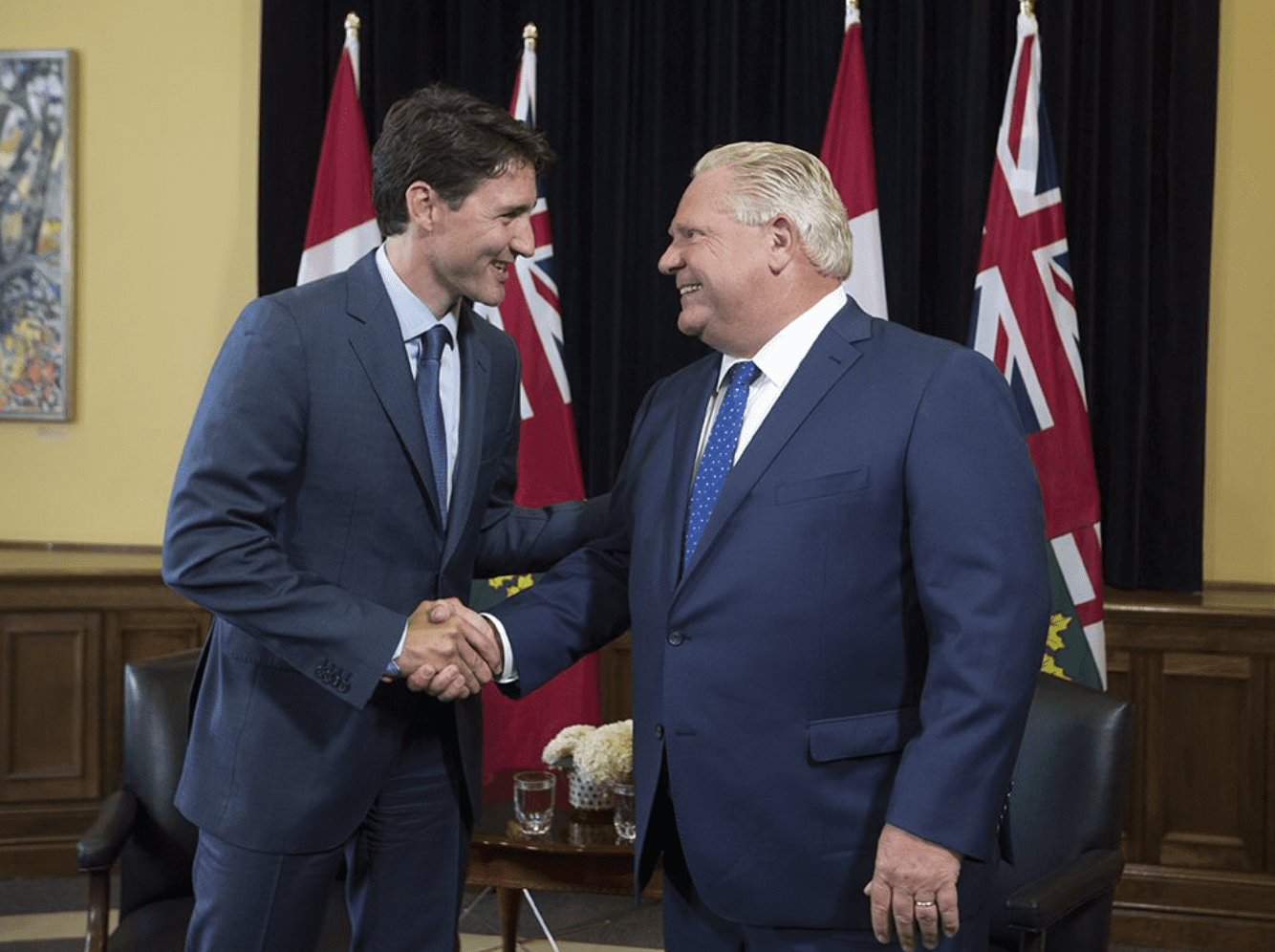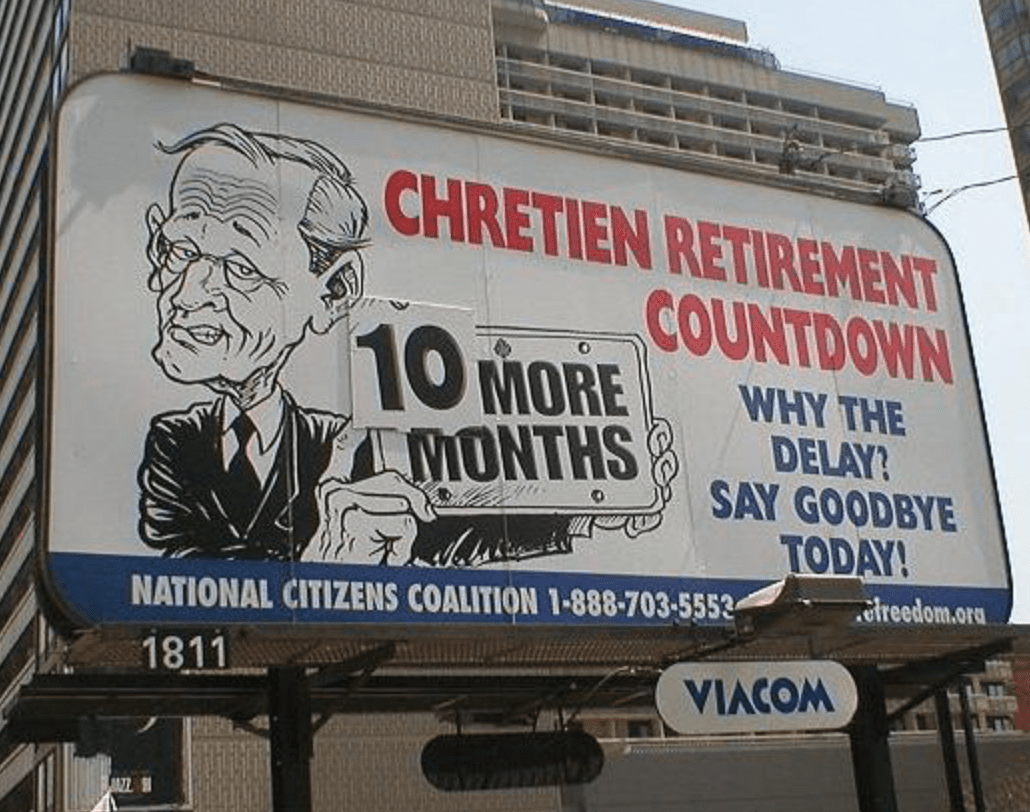Since his election victory, Justin Trudeau has embarked upon a tour de force of private meetings with anyone and everyone in positions of high political leadership.
All of the country's opposition leaders were granted an audience with the prime minister. So too were big city mayors, like Vancouver's Kennedy Stewart and Calgary's Naheed Nenshi. And of course, provincial premiers had their place in the sun with Trudeau as well.
The most significant development to occur from this raft of meetings, was the new tone and friendly rapport struck between the Prime Minister and Ontario's Premier Doug Ford.
Speaking to press prior to their meeting, Justin Trudeau stated, "We're obviously not going to agree on everything but the things that we do agree on, I look forward to working respectfully, collaboratively, and co-operatively, in ways that are going to benefit the people of Ontario and indeed right across the country."
Doug Ford echoed these sentiments with comments of his own after their private chat, "We have to stick together as a country and send the message to the rest of the world that we're Canada and we're ready to move forward."
This was certainly a far different relationship than Canadians are used to observing between the two leaders. During the recent election campaign, Justin Trudeau slammed Doug Ford repeatedly for his government's spending cuts. In fact, Trudeau demonized Ford with such vigor and frequency that at times it appeared Ford, not Andrew Scheer, was his chief opponent.
But of course, Doug Ford has been no ray of sunshine either.
He has campaigned vehemently against the federal Liberal carbon tax. And has made his opposition personal too, claiming at least on one occasion that Trudeau was "totally incompetent" to be prime minister.
Needless to say, the two were far from political bedfellows.
However, much of that antagonism appears to have dissipated, at least for the time being.
And Trudeau and Ford are all the wiser for it, especially as both leaders are in the process of trying to regain any standing they once had as mature, responsible leaders, equipped with the task of governing.
Thanks to a tumultuous start to his premiership (filled with patronage scandals and embarrassing back tracks on spending cuts) Ford has plummeted in public opinion polls. And now that Trudeau has been re-elected, Ford has no other choice but to appeal to switch-voters in Ontario and display some maturity by working collaboratively with the prime minister.
Not to mention the fact that many of Ford's election promises rely heavily on federal dollars from the Liberal government. Increased funding for healthcare, as well as a new subway plan in Toronto, will flow far more quickly to Queen's Park if the Premier isn't constantly bashing Trudeau any chance he can get.
Perhaps as well the strained tensions of the nation has given Ford second thoughts on spewing any more corrosive rhetoric against the prime minister, especially with the resurgence of the Bloc Quebecois and the rise of tensions throughout much of the prairies.
Regardless of his reasoning, Ford's newfound display of maturity is a welcome one.
Like Ford, Justin Trudeau is similarly in the process of recuperating his image.
As prime minister, Trudeau's credibility took its most serious hit after news of the SNC-Lavalin scandal broke. His successive plunge in the polls made for an uphill battle for the Liberals, who never fully recovered to secure their coveted second majority.
If Trudeau can work productively with the bellicose and unpredictable Doug Ford, it could help the Prime Minister recover some of that lost credibility.
It certainly worked in the past, when Trudeau received lavish praise for his restraint in dealing with the even more belligerent and erratic Donald Trump.
Unfortunately, Trudeau's restraint appears to be in short-supply these days after he was carelessly caught gossiping with French President Emmanuel Macron and British Prime Minister Boris Johnson about Trump at the NATO summit in London. In typical Trump fashion, the President wasted no time in lashing out. After calling Trudeau "two-faced" he departed the summit early.
While Donald Trump must surely test the patience of all his political counterparts, it is still no excuse for Trudeau to have channeled his inner teenager and blabbed about the president in a public forum, especially with live video cameras nearby.
Trudeau better hope that Trump doesn't retaliate in any significant way. For if he does, Trudeau could find out quite quickly that his reputation for managing Canada-U.S. is no longer one of his greatest strengths.
Instead it'll be viewed as one of his greatest liabilities.
In the case of such an event, the damage would be so severe to Trudeau, that not even touting his cooperation with Doug Ford would be enough to salvage his credibility as a responsible leader.
Without a doubt it's been promising to observe Trudeau's maturity in dealing with Ford. It's just a shame the prime minister seems to have abandoned his restraint in dealing with Trump at the same time.
Photo Credit: National Post








